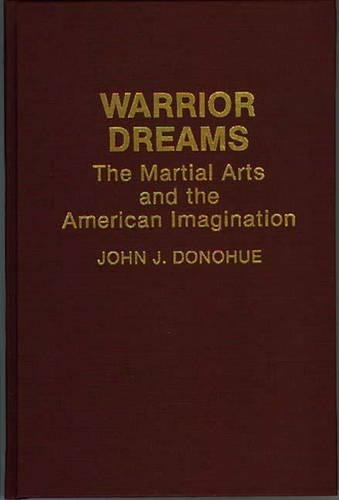
Warrior Dreams: The Martial Arts and the American Imagination
(Hardback)
Publishing Details
Warrior Dreams: The Martial Arts and the American Imagination
By (Author) John J. Donohue
Bloomsbury Publishing PLC
Praeger Publishers Inc
26th January 1994
United States
Classifications
Tertiary Education
Non Fiction
796.801
Physical Properties
Hardback
160
Width 156mm, Height 235mm
369g
Description
This is an analysis of the martial arts as socio-cultural and symbolic phenomena. As Americans search for a sense of purpose, belonging, and structure in life, they have chosen an Asian cultural tradition and changed it to suit the needs of contemporary American society. A brief historical summary of the development of martial arts in Japan sets the scene for the reinterpretation of the role of these arts by American mass media. Donohue, an anthropologist with a black belt in karate, explores the important role that the martial arts play in the American psyche. As a means of developing personal power, self-defense systems are aesthetic and spiritual practices as well as statements of urban paranoia reacting against street violence and life-threatening situations. Martial arts organizations are seen as symbolic vehicles for enmeshing participants in constellations of actions and philosophies that create a sense of self and community.
Reviews
"This book represents an example of the potential power imbedded in scholarship freed from the unimaginative and ritualistic stodginess of conventional research protocols. It clearly demonstrates the way in which this emerging scholarship can be both personal and intellectual, practical and conceptual. Although much of the book is situated within a feminist context, it should not be thought of as a volume just for women educators. As a man, I found it engaging and relevant to my own experiences as a teacher, scholar, parent, and student of education. Like the authors, its audience will be a diverse collection of individuals. I recommend it for preservice and inservice teachers, graduate students in education, sociology, and womens studies, school administrators, and academic researchers."-Jesse Goodman, Associate Professor Indiana University
Based on evidence drawn from participatory-observation and secondary readings, Donohue argues that the myths, symbols, and organizations of the martial arts met various psychic needs and addressed basic human issues such as power, control, and identity. The martial arts offer through their symbols, historic traditions, and (inefficient) techniques of self-defense a sense of security and control, community, and a moral guide to action. Chapters include a cross-cultural analysis of martial systems, a brief history of Asian martial arts, an analysis of how the arts were adapted to fit US warrior myths, an anthropological study of the US Dojo, and an examination of US fascination with the mysterious (quasi-religious) masters.-Choice
"Based on evidence drawn from participatory-observation and secondary readings, Donohue argues that the myths, symbols, and organizations of the martial arts met various psychic needs and addressed basic human issues such as power, control, and identity. The martial arts offer through their symbols, historic traditions, and (inefficient) techniques of self-defense a sense of security and control, community, and a moral guide to action. Chapters include a cross-cultural analysis of martial systems, a brief history of Asian martial arts, an analysis of how the arts were adapted to fit US warrior myths, an anthropological study of the US Dojo, and an examination of US fascination with the mysterious (quasi-religious) masters."-Choice
Author Bio
JOHN J. DONOHUE is Academic Dean at Medaille College, Buffalo. He is trained as an anthropologist and also holds a black belt in karate. He is the author of The Forge of the Spirit: Structure, Motion, and Meaning in the Japanese Martial Tradition and is coeditor of The Human Condition in the Modern Age.
